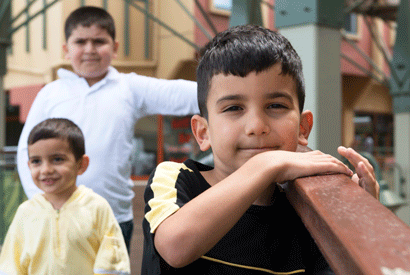Public pre-K still out of reach for many in NYC, according to report

Public preschool remains out of reach for almost 19,000 children in New York City's low-income neighborhoods as Mayor Bill de Blasio expands his "universal" pre-K program into better-off communities, according to a new analysis from the University of California, Berkeley.
Of the city's approximately 103,000 4-year-olds who are eligible for pre-K, the mayor aims to provide nearly 70,000 of them with classroom seats this August. But the school year ended last month with almost 19,000 children – residing in the city's lowest-income areas – with no access to any pre-K program, according to city data released last month to researchers.
Meanwhile, city officials have promised to expand the count of pre-K slots in better-off parts of the city, as detailed in the research brief released today.
"The mayor's second year of expansion will cut pre-K costs for well-heeled parents, but it's not designed to close the access gap that continues to disadvantage low-income families," said Bruce Fuller, lead author and professor of education and public policy at UC Berkeley.
Mayor de Blasio's pre-K program is one of three city initiatives providing child care and preschool to families and their 4-year-olds. Pre-existing programs, including Head Start, currently serve about 9,400 4-year-olds residing in the poorest two-fifths of zip codes. Median household income falls below $37,872 in these zip codes, according to Census Bureau data analyzed by the UC Berkeley team.
But after taking into account this entire pre-K landscape, almost 19,000 young children in the poorest communities still remained outside the system, researchers said.
Researchers also report that rapid expansion of the mayor's own program pulled children out of already existing programs operated by his Administration for Children's Services. Enrollments in these programs fell by almost 3,000 children following first-year expansion of de Blasio's favored initiative (2014-15). The Berkeley team earlier estimated that between 10,350 and 14,950 children switching into the mayor's growing program had been pulled from existing community-based preschools.
"The mayor's effort remains a work in progress," Fuller said. "He's unlikely to narrow wide gaps in children's early learning until the initiative focuses more on disadvantaged families."
More information: The new research brief and earlier Berkeley analyses of New York City's preschool landscape appear at: gse.berkeley.edu/expanding-pre … eley-research-briefs.
Provided by University of California - Berkeley



















